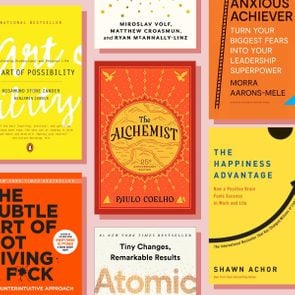What Losing a Friend Taught Me About Finding Happiness
Updated: Apr. 26, 2023

Our hustle culture demands productivity, but there's true joy in wasting time
Amid a stream of silly memes, festive fall photos and quotes inspiring happiness, my friend announced she was dying. Of course, she hadn’t intended for such a monumental statement to show up on our social media feeds in such a casual way on an ordinary October day. But she was in pain and suddenly had very little time and very many people to break the news to.
“Doctors are saying I have one to two weeks left, at best,” her post read. I initially blamed my bleary eyes for the wretched words on the screen; I was working late, so surely I’d just misread her post. How could a woman so full of life and laughter be so close to death?
A life well lived
Tracy lived big and loved fiercely. She had a soft heart, strong character and a wicked sense of humor—fitting, considering her New England roots and time spent in Hawaii, her chosen home for many years.
She was diagnosed with a rare type of cancer in 2018. And while she occasionally shared updates about her (numerous and painful) treatments, she continued to fill her life—and subsequently ours—with hope and moments of joy: concerts with her husband, adventures with her dog, colorful arrangements she created in her new career as a florist. To the very end, she was considerate and selfless, offering comfort and reassurance to all of us when she deserved it most.
“I’m at peace with what’s happening,” she’d written in her post. “I’ve had a lot of time to know this was coming. I have had a long time to prepare. I have a thousand other things to say, but I’ll just keep this brief. Love you all. Be kind.”
I don’t know many people who could say the same in that situation. I certainly couldn’t.
Letting go of lazy
I was born into a blue-collar family and raised in a house where hard work was non-negotiable. Waking hours had to be spent on work—whether a job, housework or schoolwork—and giving attention to anything that didn’t qualify as work was considered lazy. Unsurprisingly, I’ve never been able to fully enjoy simple things like watching TV, reading a book or hanging out with friends, at least not without feeling guilty for “wasting time.”
The competitive culture of busyness in the United States, coupled with the increasing cost of living, glorifies side hustles and, for many people, necessitates working long hours. We don’t set boundaries between work and life because we’re taught to believe the grind will lead to success and, presumably, happiness.
But even after putting in many years of long hours, juggling multiple jobs, setting and hitting goals and traveling to dream destinations, I felt a lack of joy in my life. I realized that I couldn’t fully experience happiness if I measured it—and myself—only by the tangible things I could produce.
Finding happiness in wasted time
Tracy’s death—and the joyful, courageous and kind way that she lived—forced me to challenge some deeply ingrained beliefs and get honest with myself: If I knew I had just a week or two left to live, I wouldn’t dedicate my life to trying to be happy through productivity. I would wish I’d spent more of my life “wasting time.”
In an effort to escape the hustle and unlearn inherited beliefs, I recently returned to a country where a person’s worth is not determined by their work, and “wasting” time with friends and family is actually valued and central to the culture.
Allowing space in my life for do-nothing days has created room for genuine joy: sunset walks around the neighborhood, late-night dance parties, mini language lessons with a local shopkeeper, an impromptu dinner on a rooftop. These moments are not wasted; on the contrary, they’re fertile grounds for human connection and inspiration. And they’re vital for happiness now and long after time and people have passed.
Below Tracy’s social media post on that otherwise ordinary October day, friends and family commented with memories of first meetings, funny moments and gratitude for the time they’d spent with her, whether it was a brief encounter or decades of friendship. In the heaviness, those memories offered levity. In the dark, they were a warm light reflecting back the joy and compassion she’d shown to us.




















